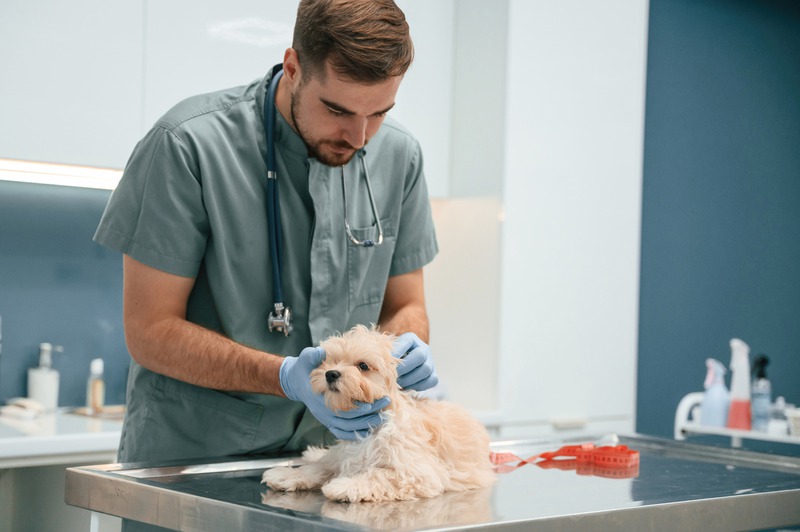Securing the long-term health and happiness of your pet is a responsibility that each pet owner holds dearly. An essential part of this caregiving is ensuring they receive the right vaccinations. But how does a veterinarian decide what shots are necessary for your furry friend? With an array of potential vaccines and each pet’s unique lifestyle, determining the appropriate immunization protocol is more than a cookie-cutter process.
The Basis of Veterinary Vaccination Protocols
Veterinarians follow a tailored approach to vaccination, considering several factors to establish the best preventative care plan for your pet. Here’s how they navigate the vaccination panorama:
-
Age: Puppies and kittens require a different vaccine series than adult pets to build immunity early on.
-
Health Condition: Existing health issues could influence the type and timing of vaccinations.
-
Lifestyle: Outdoor versus indoor pets may need different vaccines due to their exposure risks.
-
Geography: Certain diseases are more prevalent in some areas, influencing regional vaccine recommendations.
-
Legal Requirements: Mandatory vaccines, like rabies, are determined by law and vary by region.
Pet Lifestyle and Vaccination Needs
Understanding your pet’s daily routine and exposure risks is key to customizing their vaccination plan. Here are the lifestyle considerations:
-
Indoor vs. Outdoor: Outdoor pets are at higher risk for diseases and thus may need additional vaccines.
-
Social Behavior: Frequenting dog parks or boarding facilities expose pets to more risks, requiring broader protection.
-
Travel Habits: Pets traveling out of state or country may be subject to additional vaccination regulations.
Risk Assessment in Veterinary Care
Risk assessment is a critical component of determining a pet’s immunization needs. The veterinarian examines exposure risk to infectious diseases and balances it against the risk of vaccine reactions. Here are some crucial assessments involved:
-
Disease Prevalence: Information on local outbreaks informs decisions on necessary vaccinations.
-
Severity of Diseases: Vaccines are often prioritized for diseases with high morbidity and mortality rates.
-
Community Health: Herd immunity is a consideration, especially for highly contagious diseases.
Core vs. Non-Core Vaccinations
Veterinarians categorize vaccines as core or non-core. Core vaccines are recommended for all pets, while non-core vaccines are given based on individual risk. Core vaccines protect against diseases that are widespread, cause severe illness, or are transmissible to humans, while non-core vaccines are optional and depend on a pet’s exposure risk.
Pets are generally offered a combination of:
-
Core vaccines, such as for rabies, distemper, parvo, and hepatitis.
-
Non-core vaccines, like those for Lyme disease, leptospirosis, and kennel cough.
The Role of Regular Health Assessments
A comprehensive health assessment is a bedrock step in vaccination planning. This evaluation involves:
-
Physical Examination: A veterinarian’s thorough check to rule out any health issues is done before vaccinating.
-
Medical History Review: Past medical records provide insights into the pet’s immune status and vaccine reactions, if any.
-
Current Health Status: A sick pet might not be vaccinated until recovery to avoid overwhelming their immune system.
Creating a Tailored Vaccination Schedule
After evaluating the above factors, a veterinarian devises a personalized vaccination schedule that optimizes your pet’s protective measures against diseases. This itinerary includes:
-
Initial Vaccinations: These are often administered in a series to young pets to establish baseline immunity.
-
Booster Shots: Regularly scheduled boosters sustain immunity established from initial vaccines.
-
Frequency of Vaccinations: Some vaccines are annual, while others might be required every three years, depending on the vaccine type and the pet’s needs.
The Significance of Updating Vaccinations
Keeping vaccinations up-to-date is pivotal to ensure continuous protection. This practice involves:
-
Adherence to Schedule: Following the recommended timeline helps maintain adequate immunity levels.
-
Adjustment to Changes: Lifestyle changes such as moving or starting to travel can require updates to vaccination protocols.
-
Age Consideration: Senior pets might have changing health needs affecting vaccine decisions.
Vet Services and Your Pet’s Wellness
Expert vet services go beyond vaccines, including a broad spectrum of care that can improve and extend your pet’s life. Services like dental care, pet grooming, emergency services, and pet nutrition contribute to overall wellness. Local options such as a Blountville animal clinic offer a convenient and comprehensive care center for your companion.
The Importance of Caring for Your Pet
Pet ownership is a rewarding experience, and part of the joy comes from seeing your pet thrive. Services in the veterinary field, including veterinary testing and analysis, play a considerable role in proactive pet wellness, ensuring a happy life for your animal companion.
Regularly visiting the vet ensures your pet’s health stays on the right track. It’s more than just an annual necessity; it’s a proactive approach to catch potential issues early. If it’s time for your pet’s check-up or vaccination update, don’t hesitate to visit now and secure their well-being.
Final Thoughts
Deciding on the appropriate vaccinations for your pet is a crucial aspect of being a responsible pet owner. It is a collaborative effort that requires thorough discussions with your veterinarian, who considers various factors like your pet’s age, lifestyle, and overall health. By understanding the nuances of vaccine protocols, you can ensure that your pet receives the necessary protection against preventable diseases.
Remember, when it comes to pet health, prevention is always better than cure, and ensuring your pet receives the right vaccinations is an investment in their long-term well-being.





